- Home
- Kristi Belcamino
Blessed Are Those Who Mourn Page 2
Blessed Are Those Who Mourn Read online
Page 2
I knew it.
“Must’ve been before my time at the paper,” I say, returning my gaze to the beach behind the crime-scene tape. “Wish I would’ve been able to go.”
He readjusts the tripod his heavy camera rests on and fiddles with some cables as he talks. “You could launch a rubber dinghy at the slough in between Coast Guard patrols. They are usually every half hour. See the station over there? They are supposed to guard the ship against squatters. You have to pull your boat up on the ship or you’re busted.”
“You did that?”
He chuckles and adjusts the focus on the camera lens he has pointing toward the dead body on the beach. “Nah, not me. I’m not that dumb. But I grew up in Benicia. This was our backyard. A kid I knew snuck onboard in high school. Claimed it was a cool place to party. There used to be more than three hundred ships here then, so it was easier to get away with. Plus it was before nine-eleven. There was only one old beat-up patrol boat, and the dude was probably drunk half the time anyway. You’ve got to go a few rows in, though, or they could see you from the Coast Guard station.”
I study the dead woman’s body through my binoculars again. I can’t figure it out. She’s not bloated and gruesome-looking like a drowning. She looks like she’s resting from a swim. How did she wash up on this forgotten little island?
“Who found her?” I ask. A fisherman, most likely, since the channel nearby is a popular fishing spot. But even then, what were the odds someone spotted her on this shore?
“Tipster,” the cameraman says.
I’m glad I decided to stand near this guy. He’s obviously got some good insider information from a source. Crime scenes can be like happy hours. While reporters wait for an official to give us details, we gossip about off-the-record info we’ve heard. But never with the competing newspaper, only with the TV people, and never anything that is truly a scoop. I eye Andy Black, from the San Francisco Tribune. It looks like he’s trying to charm information from the well-endowed Channel 4 reporter. Like always, he looks like a hair-and-makeup crew on a movie set just finished touching him up. Guess that’s what you look like when you work for the biggest paper in town. I cringe thinking I ever found his preppy good looks attractive.
“What else did you hear?” I ask.
“Doesn’t your cop husband give you the skinny?” the cameraman asks, squinting at me sideways.
“He’s not my husband.” I’m glad the dark hides the heat flaring across my cheeks.
“Well, then your baby daddy or whatever you call him?”
I’m opening my mouth to answer when the crowd clears and Rosarito Police Sergeant Beverly Anne Fazio heads our way in her navy blue police uniform, her sleek auburn bob ruffled by the wind. She sees me and offers a quick smile before growing serious and professional.
All the reporters stop talking and cluster around her. She stands so the orange skies of the Martinez refineries lit up in the dark are behind her, puffy clouds of refinery smoke billowing out at regular intervals.
“At eighteen hundred hours we received word that a body had been found at Preston Point on Roe Island,” she says. “The Coast Guard and Solano County sheriff’s water patrol units deployed boats to investigate. Upon arriving, officers found the deceased body of a woman in her twenties. The medical examiner’s office will confirm identity and determine cause of death.”
The island is in Solano County, but it still doesn’t explain why Rosarito PD and Donovan, aka my baby daddy, were called out. I’m grumbling inside about the cameraman calling him that.
I know I’m extra sensitive because my entire Italian-American family is mortified I had a child out of wedlock, but I’m not getting married simply because they want me to. We keep talking about tying the knot, but who has time? With Donovan’s schedule as a murder cop and my erratic schedule as a crime reporter, lately we’re lucky if we’re able to do what we did tonight—have a few hours with just the three of us together. Who says we need a piece of paper to prove it anyway? Oh yeah—according to my family, that would be the pope.
As soon as Beverly Anne finishes speaking, several reporters shoot questions at her all at once.
“How long has she been dead?”
“Is there any sign she drowned?”
“Are you investigating it as a homicide?”
Beverly Anne holds up her hand. “Come on, guys, you know the drill. Just because we’re on a deserted island doesn’t mean you should forget your manners. Okay, Mary Jo, you first. You asked whether it’s a homicide. Right now, we are investigating it as a suspicious death.”
More reporters throw questions out. Andy Black and I hang back, waiting, as we usually do, for the TV reporters to take a breath. I scoot as far away from him as possible.
At that moment, a small boat careens in near the shore where giant spotlights are set up to illuminate the crime scene. The cops use their hands to shield their eyes, squinting toward the noise. The boat’s waves lap the shore, making the body bob where it rests at the edge of the water.
The cops scowl and shout at the boater. In the shadows of the boat, a figure holding a camera snaps off pictures. The engine on the small boat starts up again, and a familiar cackle drifts across the water. In the commotion, the press conference is forgotten. Who would have the balls to come in at the murder scene from the water? Lopez. He lives and breathes the crime beat. He’s never without a small earbud headphone trailing down to the police scanner clipped to his belt.
Lopez was with me the night I hunted down and killed Jack Dean Johnson at the former Fort Ord military base after he kidnapped my niece. At the time I also thought he’d killed my sister.
As soon as everyone settles down, Beverly Anne turns back to us, and Black speaks up. He’s so nonchalant that you wouldn’t suspect what a lying snake he becomes just to get a story.
“Is it true that a tipster called in the body?” he asks.
Beverly Anne purses her red lips together for a second, thinking, and then decides it’s okay to answer. “Yes.”
My turn. The question I’ve been waiting to ask.
She sees my hand.
“Gabriella?”
“Do you have any way of tracing calls that come into your tip line?”
“I’m not at liberty to release that information,” she says, shooting me a warning look. Beverly Anne and I have hung out at department picnics and are friends, but she’s not going to play favorites. She’s a real cop.
Plus, she’s sharp. She knows my question was geared to find out if the tipster had called the Rosarito Police Department or a different cop shop. She just confirmed it. I’ve been wracking my brains trying to figure out why Donovan and the Rosarito Police Department are on this homicide if it’s on some island in the Suisun Bay. Rosarito is around the peninsula from here. The closest Solano County city is Benicia. Both Benicia and Solano County investigators are here, but why is Rosarito involved? Unless the tipster called their tip line.
Chapter 4
AFTER THE PRESS conference ends, the TV crews hang around, waiting to go live on the ten o’clock news. I head for the east side of the island, waiting a few seconds until I see that Andy Black is deep in conversation with the Channel 4 reporter before I slip behind some brush. It won’t take long for him to talk her into going back to his place. I know. I also know that he’s ruthless and will sleep with anyone for a scoop.
Stickers and small branches tear at my bare legs as I tromp through the bushes. A small strip of beach lies between the shrubs and the water, so I make my way toward that, keeping to the sand bordering the water. The farther I get from the murder scene and the big spotlights, the darker it gets and the louder the crickets become. I unearth my small flashlight from my bag. The island can’t be that big. I figure I will round it and meet up with someone at the south side, where I can hitch a ride back to the dock.
> To the west, the fog has rolled in, erasing the orange skies of the Martinez refineries and the looming ships of the Phantom Fleet like they never existed. I pick my way along the shore, not sure what I’m looking for. Maybe the woman’s handbag or something else that belongs to her has washed up nearby.
My focus is on the wet sand near the shore, so when my flashlight reveals deep footprints embedded in the sand, I know they are fresh. There are two sets of prints, coming and going. I follow them back toward the crime scene until they dead-end at a tall bank of tangled branches. What I see there makes me draw back.
Branches are broken in one spot, revealing a perfect glimpse of the detectives working on the crime scene more than thirty feet away. Someone was here. Watching. An icy chill races down my spine. I look behind me but see nothing. The fog has crept onto the island now and is making its way toward me. Without thinking, I shine my flashlight down on the receding footprints and follow them. I’m short of breath, and my heart is pounding when I round a corner and see something move.
In the fog, about ten feet away, a figure in a thick jacket and baseball cap pushes a small rubber boat away from the shore. His hat is pulled low over his face so I can’t see his features. Before he leaps into the boat, the man turns, his arm swooping in a big arc as he tosses something onto the shore behind him. Then the fog swallows him and the boat into its midst.
My shout brings Donovan and several other cops running. It takes them nearly a minute to get to me since they have to take the same path I did inland and around the big thorny brush near the shore.
“A man took off in a boat right here. He threw this at me,” I say when they finally arrive, pointing to the sand. “He was watching you guys through the bushes.”
I spend the next ten minutes telling Donovan’s partner, Finn, what I saw. Finn, balding, soft-spoken, and as tall and thin as a poplar, takes careful notes.
As soon as I’m done, the media is booted off the island. The TV reporters grumble. The entire island is now considered a crime scene. I watch as they bag the small white plastic square he threw at me. I don’t say that I saw what it was. Before the police responded to my shout, I shined my light on it and memorized what it said.
All the journalists are crammed on one boat this time. The cops aren’t messing around. They want us gone yesterday.
Somehow, Black worms his way over to where I sit in the small boat, trying not to get motion sick as the boat lurches and bucks in the waves.
“Nice going, Giovanni, ruined the live shot for the TV folks,” Black says with a smirk. “What’d you see out there anyway?”
I shake my head and look away, glad the wind blows my hair across my face so he won’t see me flushing red with anger and embarrassment. Black got the best of me once a long time ago. Never again.
The man in the boat had thrown a college ID from the University of California, Santa Cruz onto the sand. Agnes Clark. Twenty-two years old. Although I have no way of knowing for sure, my gut tells me it belongs to the dead woman on the beach. In the ID photo, the woman’s blond hair is sleek, her smile brilliant, her eyes twinkling with mischief. With life. A friend. Daughter. Maybe sister. Dead now. The figure on the boat had wanted me to see it—had thrown it right at me. But why?
Chapter 5
THE NEWSROOM IS nearly empty when I rush in an hour before deadline.
A few reporters remain, pounding on their keyboards. The big-screen TV that takes up one whole wall of the newsroom blares highlights from the Oakland A’s game. A few copy editors gather around the table where we put free food. Someone scored mini muffins from a local bakery, and people are popping them like pills. I throw my bag on my desk and head for the food, but when I show up, there is only a box with crumbs.
“I need food ASAP!” I shout to nobody in particular. “If I don’t get something to eat soon, there’s going to be another murder to write about around here.”
Nobody looks at me.
The executive editor, Matt Kellogg, is squeezed into his cubicle, big belly indented where it is squished against his desk, knees crunched, brow furrowed in concentration. He refuses to move into a big corner office, claiming he wants to be on the newsroom floor with his “troops.” I called him on the way in and gave him the gist of my story.
I pause beside him.
“How much room do I got?”
“Fifteen inches. Paper’s tight tonight,” he says, stroking his bushy beard without looking away from his screen.
“Got it.”
“Hold up,” he says when I start to walk away. He digs under a stack of today’s newspapers and hands me a small pizza box. “I don’t have space for another murder in the paper. Save it for tomorrow.”
I sneak a peek inside the box on my way to my desk. Score! Two pieces of sausage and pepperoni pizza. Settling in at my desk, I wolf down one piece of the pizza, washing it down with an old bottle of water that tastes like dirt.
While I wait for my computer to boot up, I dig in my bag for my cell phone.
I‘d called Donovan on the drive to the newsroom, but he couldn’t talk. Probably worried someone would think he was giving me insider dirt on the murder. I wish. Or maybe he was going to warn me not to use what I saw on the ID.
I won’t use her name, because the last thing in the world I want to do is have her family read about it in the newspaper before the cops do a death notification. But there are some details I’m going to include. For instance, that she was a twenty-two-year-old college student in Santa Cruz.
When I unearth my phone, I’m rewarded with a text from Donovan: We need to talk. Call me after deadline.
I won’t see him tonight. It’s the first twenty-four hours of a homicide investigation, so he’ll work straight through the night. I think of the bottle of red wine I picked up earlier to have with our lobster linguine after Grace went to bed. So much for a romantic Saturday night together.
I’m logging onto my computer when the night cops reporter, May, slides into her seat. I give her a cursory hello. “Anything else going on besides my murder?”
She bends and buffs a scuff on her white Chanel flats as she speaks, her neat brown bob hiding her face. “Not really. They had a missing kid earlier today, but she ended up being at a park near her house.”
Once upon a time, just the words “missing kid” would have sent me into a panic attack. Now I take it in stride. It’s hard to believe it’s been nearly thirty years since Caterina was kidnapped.
I punch out a quick story about the murder and scan the pictures Lopez e-mailed to me.
“Want to see the murder shots?” I ask May. Most of them are no good for the paper. We don’t print pictures of dead bodies. But one picture is spectacular and will shoot my story right to the front page. The foreground of the pictures shows dark water leading to a shoreline where several cops, including Donovan, crouch in a half circle. The body in the foreground is blurry, so the paper will probably use it. The cops’ faces are, however, in focus. Some of the men are smoking. All of them are frowning or have intense looks. Behind them, about ten feet back, stands a blurry line of journalists holding cameras and notepads. I’m grateful that I was somewhere in the back. Standing in front of the journalists, Sergeant Beverly Anne is in focus, turned halfway toward the camera, looking right into it. Her auburn hair is whipping in the wind, and she holds up a hand to shield her eyes, trying to figure out who is interrupting her press conference. C-Lo is brilliant at capturing the exact mood of a scene.
May avoids answering my question about seeing the photo, adjusting the silky scarf around her neck and changing the subject. “Anything on that Roe Island murder that needs following tonight?”
Questions like that are why I’m glad May’s the night cops reporter even though we really don’t like each other that much. I gather up my things but keep my computer on with the pictures of the murder sce
ne, squinting to see if there was something there I missed.
“Sure. Make a call before you leave to see if there’s anything new,” I say. “There’s a slight chance they’ll release the ID tonight if they’re able to do the death notification. Beverly Anne will have her cell on until eleven thirty.”
“Will do. I’ll be sure to give Sergeant Fazio a call.” I can tell by the way she emphasizes Fazio that she’s irritated I refer to the sergeant by first name only.
May returns to her grooming, this time pouting her thin lips and slicking on light pink lipstick while glancing into a compact mirror. But then she turns to me.
“Isn’t your boyfriend on this one?”
“Yeah, like that helps.”
I stare more at the picture on my computer screen and pick up my phone. “Hey, C-Lo, I think the killer was out there on the water about the same time as you.”
“No way, man.”
“Yeah. You see anything?”
“Nah, I didn’t see nothing except the sheriff’s boats chasing my ass back to shore.”
Before I log off my computer, I shoot Liz, the news researcher at our paper, an e-mail asking her to search for information on Agnes Clark and also to dig up background on the Phantom Fleet. I’m always looking for features stories to work on when the crime beat is slow.
With my bag slung over my shoulder, I hover at Kellogg’s desk until he looks up.
“When’s the last time someone wrote about the Phantom Fleet?” I ask.
Kellogg pushes his large frame back from his desk and scratches his chin, grunting. His eyes narrow as he thinks.
“I’m gonna say 1990. Some anniversary deal. Stanford wrote a small piece, but it was mostly a photo essay. C-Lo was the shooter. Got some cool shots. Why? You want to do a piece on it?”

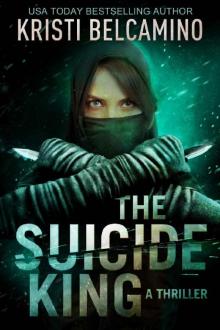 The Suicide King
The Suicide King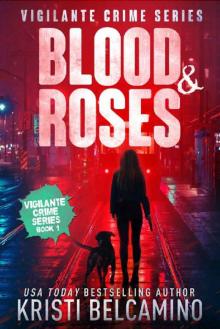 Blood & Roses (Vigilante Crime Series)
Blood & Roses (Vigilante Crime Series)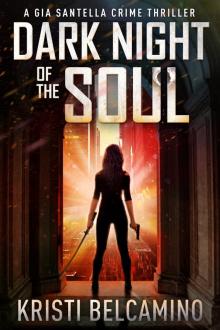 Dark Night of the Soul
Dark Night of the Soul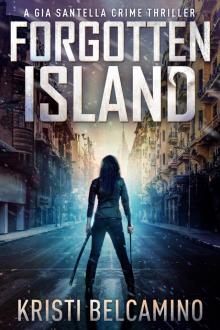 Forgotten Island
Forgotten Island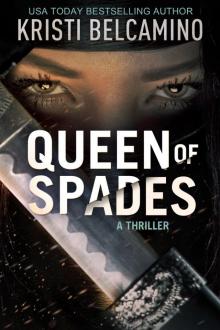 Queen of Spades
Queen of Spades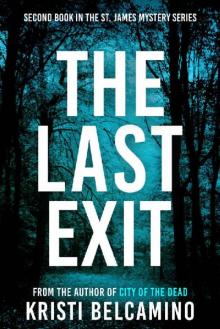 The Last Exit: A St. James Mystery (St. James Mysteries Book 2)
The Last Exit: A St. James Mystery (St. James Mysteries Book 2)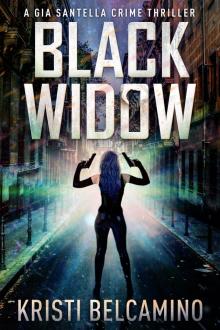 Black Widow
Black Widow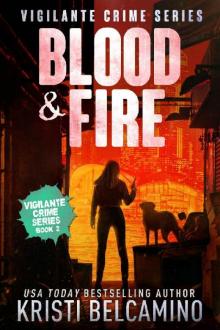 Blood & Fire (Vigilante Crime Series Book 2)
Blood & Fire (Vigilante Crime Series Book 2) End Game
End Game Buried Secrets
Buried Secrets Death on Sunset Hill (A Tommy St. James Mystery Novella Book 2)
Death on Sunset Hill (A Tommy St. James Mystery Novella Book 2)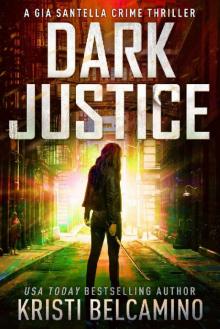 Dark Justice
Dark Justice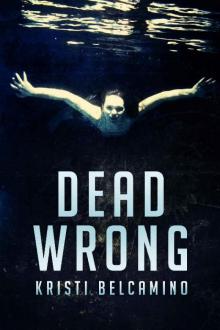 Dead Wrong
Dead Wrong No Way Out
No Way Out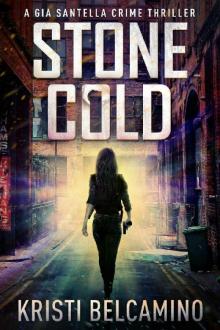 Stone Cold
Stone Cold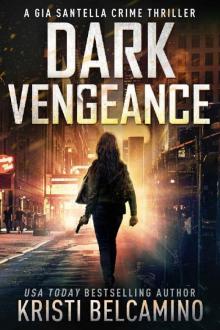 Dark Vengeance
Dark Vengeance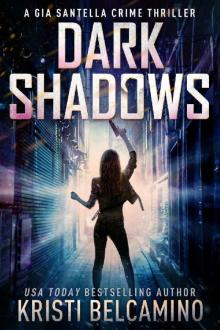 Dark Shadows (Gia Santella Crime Thrillers Book 11)
Dark Shadows (Gia Santella Crime Thrillers Book 11)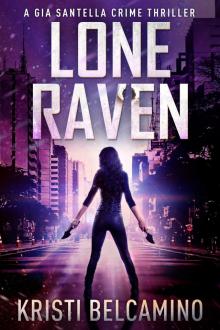 Lone Raven
Lone Raven![[Gia Santella 01.0] Gia in the City of the Dead Read online](http://i1.bookreadfree.com/i/03/16/gia_santella_01_0_gia_in_the_city_of_the_dead_preview.jpg) [Gia Santella 01.0] Gia in the City of the Dead
[Gia Santella 01.0] Gia in the City of the Dead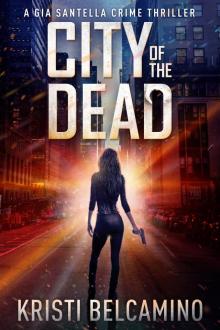 City of the Dead
City of the Dead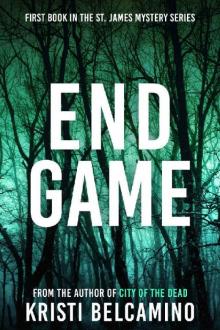 END GAME: A St. James Mystery (St. James Mysteries Book 1)
END GAME: A St. James Mystery (St. James Mysteries Book 1)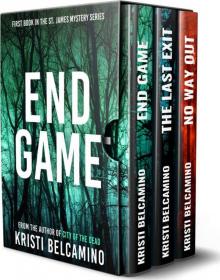 Tommy St James Mysteries Boxed Set
Tommy St James Mysteries Boxed Set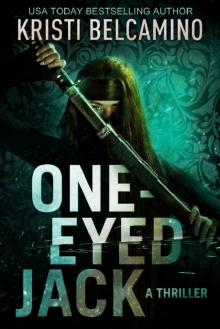 One-Eyed Jack
One-Eyed Jack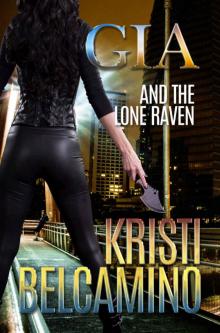 Gia and the Lone Raven
Gia and the Lone Raven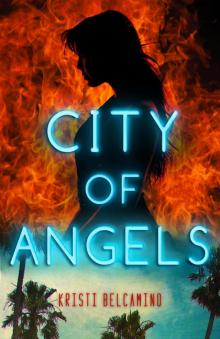 City of Angels
City of Angels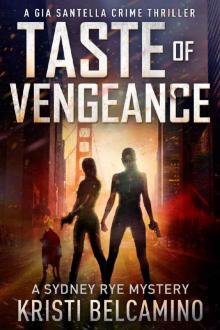 Taste of Vengeance
Taste of Vengeance Gia Santella Crime Thriller Boxed Set: Books 1-3 (Gia Santella Crime Thrillers)
Gia Santella Crime Thriller Boxed Set: Books 1-3 (Gia Santella Crime Thrillers) Death under the Stone Arch Bridge
Death under the Stone Arch Bridge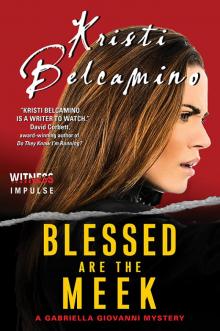 Blessed are the Meek
Blessed are the Meek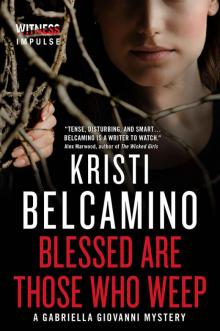 Blessed Are Those Who Weep
Blessed Are Those Who Weep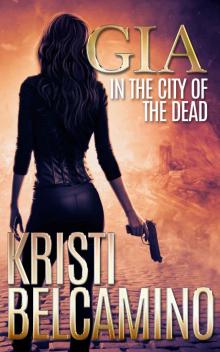 Gia in the City of the Dead
Gia in the City of the Dead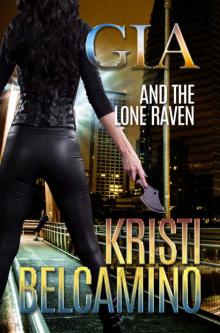 Gia and the Lone Raven (Gia Santella Crime Thriller - Novella Book 4)
Gia and the Lone Raven (Gia Santella Crime Thriller - Novella Book 4)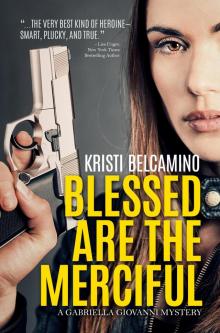 Blessed are the Merciful
Blessed are the Merciful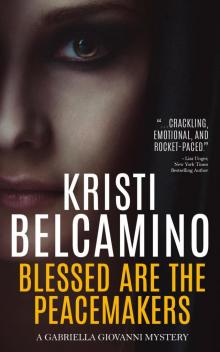 Blessed are the Peacemakers
Blessed are the Peacemakers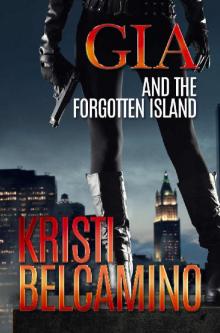 Gia and the Forgotten Island (Gia Santella Crime Thriller Book 2)
Gia and the Forgotten Island (Gia Santella Crime Thriller Book 2)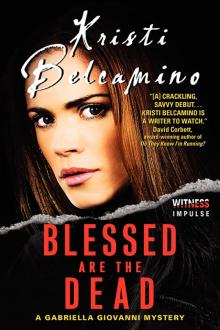 Blessed are the Dead
Blessed are the Dead Death on Sunset Hill
Death on Sunset Hill